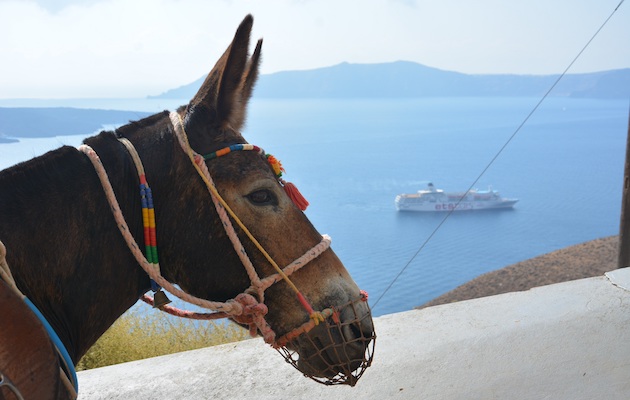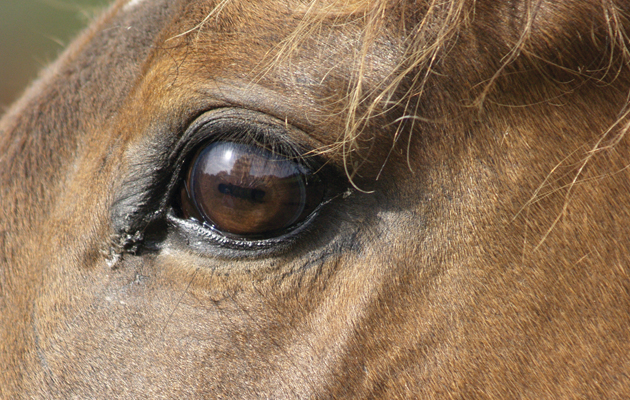A Spanish village has joined holiday destinations banning anyone over a certain weight from riding donkey ‘taxis’
Donkeys serving tourists in Spain are set to benefit from tighter rules surrounding rider weight, while tourists have been reminded of their responsibilities by welfare charities.
{"content":"PHA+RXF1aW5lIOKAnHRheGlz4oCdIGFyZSBhIHBvcHVsYXIgZm9ybSBvZiB0cmFuc3BvcnQgaW4gQW5kYWx1c2lhbiB2aWxsYWdlIE1pamFzIFB1ZWJsbywgYnV0IGluIHRoZSBwYXN0IHRoZSBuZWVkcyBvZiB0aGUgYW5pbWFscyBoYXZlIGJlZW4gb3Zlcmxvb2tlZCwgd2l0aCBoZWF2eSBsb2FkcyBwdXR0aW5nIHRoZSBkb25rZXlzIHVuZGVyIOKAnGltbWVuc2Ugc3RyYWlu4oCdLjwvcD4KPHA+PGRpdiBjbGFzcz0iYWQtY29udGFpbmVyIGFkLWNvbnRhaW5lci0tbW9iaWxlIj48ZGl2IGlkPSJwb3N0LWlubGluZS0xIiBjbGFzcz0iaXBjLWFkdmVydCI+PC9kaXY+PC9kaXY+PGRpdiBpZD0idGFib29sYS1taWQtYXJ0aWNsZSI+PC9kaXY+PHNjcmlwdD53aW5kb3cuX3RhYm9vbGFTbG90cz13aW5kb3cuX3RhYm9vbGFTbG90c3x8W107d2luZG93Ll90YWJvb2xhU2xvdHMucHVzaCh7Im1vZGUiOiJ0aHVtYm5haWxzLWEtbWlkIiwiY29udGFpbmVyIjoidGFib29sYS1taWQtYXJ0aWNsZSIsInBsYWNlbWVudCI6Ik1pZCBBcnRpY2xlIiwidGFyZ2V0X3R5cGUiOiJtaXgifSk7PC9zY3JpcHQ+PHNlY3Rpb24gaWQ9ImVtYmVkX2NvZGUtMzYiIGNsYXNzPSIgcy1jb250YWluZXIgc3RpY2t5LWFuY2hvciBoaWRlLXdpZGdldC10aXRsZSB3aWRnZXRfZW1iZWRfY29kZSBwcmVtaXVtX2lubGluZV8xIj48ZGl2IHN0eWxlPSJwYWRkaW5nOiAwcHggIWltcG9ydGFudDsiPjxkaXYgaWQ9InBpYW5vLXBheXdhbGwtbWV0ZXItYmFycmllciIgc3R5bGU9InRleHQtYWxpZ246IGNlbnRlcjsgdmVydGljYWwtYWxpZ246IG1pZGRsZTsiPjwvZGl2PjwvZGl2Pg0KDQo8c3R5bGU+DQojcGlhbm8tcGF5d2FsbC1tZXRlci1iYXJyaWVyIC50cC1jb250YWluZXItaW5uZXIgew0KICAgIHBvc2l0aW9uOiBhYnNvbHV0ZTsNCiAgICBoZWlnaHQ6IDk5OTk5cHggIWltcG9ydGFudDsNCiAgICBiYWNrZ3JvdW5kOiBsaW5lYXItZ3JhZGllbnQoMTgwZGVnLCB0cmFuc3BhcmVudCA2MDBweCwgd2hpdGUgODUwcHgpOw0KfQ0KPC9zdHlsZT48L3NlY3Rpb24+PHNlY3Rpb24gaWQ9ImtleXN0b25lLXZvZXAtd2lkZ2V0LTMiIGNsYXNzPSIgcy1jb250YWluZXIgc3RpY2t5LWFuY2hvciBrZXlzdG9uZS12b2VwLXdpZGdldCBwcmVtaXVtX2lubGluZV8xIj4KPGRpdiBjbGFzcz0iandwbGF5ZXItY29udGFpbmVyIGp3cGxheWVyLW1hcmdpbi1ib3R0b20iPgo8ZGl2IGNsYXNzPSJqd3BsYXllci13cmFwcGVyIj4KPGRpdiBjbGFzcz0iandwbGF5ZXItbWluaW1pemUtY2xvc2UiPgoJCQkJPHN2ZyB4bWxucz0iaHR0cDovL3d3dy53My5vcmcvMjAwMC9zdmciIGNsYXNzPSJqdy1zdmctaWNvbiBqdy1zdmctaWNvbi1jbG9zZSIgdmlld0JveD0iMCAwIDI0MCAyNDAiIGZvY3VzYWJsZT0iZmFsc2UiPgoJCQkJCTxwYXRoIGQ9Ik0xMzQuOCwxMjBsNDguNi00OC42YzItMS45LDIuMS01LjIsMC4yLTcuMmMwLDAtMC4xLTAuMS0wLjItMC4ybC03LjQtNy40Yy0xLjktMi01LjItMi4xLTcuMi0wLjJjMCwwLTAuMSwwLjEtMC4yLDAuMkwxMjAsMTA1LjJMNzEuNCw1Ni42Yy0xLjktMi01LjItMi4xLTcuMi0wLjJjMCwwLTAuMSwwLjEtMC4yLDAuMkw1Ni42LDY0Yy0yLDEuOS0yLjEsNS4yLTAuMiw3LjJjMCwwLDAuMSwwLjEsMC4yLDAuMmw0OC42LDQ4LjdsLTQ4LjYsNDguNmMtMiwxLjktMi4xLDUuMi0wLjIsNy4yYzAsMCwwLjEsMC4xLDAuMiwwLjJsNy40LDcuNGMxLjksMiw1LjIsMi4xLDcuMiwwLjJjMCwwLDAuMS0wLjEsMC4yLTAuMmw0OC43LTQ4LjZsNDguNiw0OC42YzEuOSwyLDUuMiwyLjEsNy4yLDAuMmMwLDAsMC4xLTAuMSwwLjItMC4ybDcuNC03LjRjMi0xLjksMi4xLTUuMiwwLjItNy4yYzAsMC0wLjEtMC4xLTAuMi0wLjJMMTM0LjgsMTIweiI+PC9wYXRoPgoJCQkJPC9zdmc+CgkJCTwvZGl2Pgo8ZGl2CgkJCQlkYXRhLXBsYXllcj0iS01VY25SaUkiCgkJCQlkYXRhLWtleT0ic0FPUHZ6bDMiCgkJCQlkYXRhLWxvYWRlZD0iZmFsc2UiCgkJCQljbGFzcz0iandwbGF5ZXIiCgkJCQlpZD0iandwbGF5ZXJfc0FPUHZ6bDNfS01VY25SaUlfOTVfZGl2Ij4KCQkJPC9kaXY+CjwvcD48L2Rpdj4KPC9wPjwvZGl2Pgo8L3NlY3Rpb24+PC9wPgo8cD5CdXQgdGhpcyBuZXcgeWVhciwgcmVndWxhdGlvbnMgZmlyc3QgZGV2ZWxvcGVkIGluIDIwMTIgdG8gaW1wcm92ZSB0aGUgZG9ua2V5c+KAmSB3b3JraW5nIGNvbmRpdGlvbnMgd2lsbCBiZWNvbWUgbGF3LjwvcD4KPHA+VGhlIHJ1bGVzIGluY2x1ZGUgYSByZWNvbW1lbmRlZCByaWRlciB3ZWlnaHQgbGltaXQgb2YgODAga2lsb3MgKDEyc3QgOGxicyksIGFkZXF1YXRlIHJlc3QgcGVyaW9kcyBhbmQgaW1wcm92ZWQgdmV0ZXJpbmFyeSBjYXJlIGZvciB0aGUgZG9ua2V5cy48L3A+CjxwPkZyb20gMSBKYW51YXJ5LCB0d28gaW5zcGVjdG9ycyBhcmUgdG8gYmUgdGFza2VkIHdpdGggY2hlY2tpbmcgY29tcGxpYW5jZSwgYW5kIHNhbmN0aW9ucyBjb3VsZCBmb2xsb3cgZm9yIGFueW9uZSBicmVha2luZyB0aGUgcmVndWxhdGlvbnMsIGluY2x1ZGluZyBsb3NpbmcgdGhlaXIgbGljZW5jZSB0byBwcm92aWRlIGFueSBzZXJ2aWNlIHdpdGggZG9ua2V5cy48L3A+CjxwPjxkaXYgY2xhc3M9ImFkLWNvbnRhaW5lciBhZC1jb250YWluZXItLW1vYmlsZSI+PGRpdiBpZD0icG9zdC1pbmxpbmUtMiIgY2xhc3M9ImlwYy1hZHZlcnQiPjwvZGl2PjwvZGl2PjxzZWN0aW9uIGlkPSJlbWJlZF9jb2RlLTMxIiBjbGFzcz0iaGlkZGVuLW1kIGhpZGRlbi1sZyBzLWNvbnRhaW5lciBzdGlja3ktYW5jaG9yIGhpZGUtd2lkZ2V0LXRpdGxlIHdpZGdldF9lbWJlZF9jb2RlIHByZW1pdW1faW5saW5lXzIiPjxzZWN0aW9uIGNsYXNzPSJzLWNvbnRhaW5lciBsaXN0aW5nLS1zaW5nbGUgbGlzdGluZy0tc2luZ2xlLXNoYXJldGhyb3VnaCBpbWFnZS1hc3BlY3QtbGFuZHNjYXBlIGRlZmF1bHQgc2hhcmV0aHJvdWdoLWFkIHNoYXJldGhyb3VnaC1hZC1oaWRkZW4iPg0KICA8ZGl2IGNsYXNzPSJzLWNvbnRhaW5lcl9faW5uZXIiPg0KICAgIDx1bD4NCiAgICAgIDxsaSBpZD0ibmF0aXZlLWNvbnRlbnQtbW9iaWxlIiBjbGFzcz0ibGlzdGluZy1pdGVtIj4NCiAgICAgIDwvbGk+DQogICAgPC91bD4NCiAgPC9kaXY+DQo8L3NlY3Rpb24+PC9zZWN0aW9uPjwvcD4KPHA+VGhlIERvbmtleSBTYW5jdHVhcnkgaGFzIGJlZW4gd29ya2luZyB3aXRoIHRoZSBsb2NhbCBjb3VuY2lsIGFuZCBkb25rZXkgb3duZXJzIHRvIGltcGxlbWVudCB0aGUgY2hhbmdlcy48L3A+CjxwPuKAnEFsdGhvdWdoIHRoZSBjaGFyaXR5IGRvZXMgbm90IGFjdGl2ZWx5IHByb21vdGUgdGhlIHVzZSBvZiBkb25rZXlzIGFuZCBtdWxlcyBpbiBhbnkgZm9ybSBvZiB0b3VyaXNtLCB3ZSBkbyB3ZWxjb21lIHRoZSBuZXcgcmVndWxhdGlvbnMgaW1wb3NlZCBieSB0aGUgTWlqYXMgYXV0aG9yaXRpZXMgdG8gaGVscCBpbXByb3ZlIHRoZSB3ZWxmYXJlIG9mIHdvcmtpbmcgZG9ua2V5cyzigJ0gYSBzcG9rZXNtYW4gZm9yIHRoZSBjaGFyaXR5IHRvbGQgPGVtPkgmYW1wO0g8L2VtPi4g4oCcV2UgYWxzbyB3ZWxjb21lIGEgY29tbWl0bWVudCBieSB0aGUgYXV0aG9yaXRpZXMgdG8gY29uZHVjdCBpbnNwZWN0aW9ucyBhbmQgZW5mb3JjZSB0aGUgcmVndWxhdGlvbnMgaW4gdGhlIG5ldyB5ZWFyLuKAnTwvcD4KPHA+VGhlIGRldmVsb3BtZW50IGZvbGxvd3MgdGhlIGludHJvZHVjdGlvbiBvZiBhIHJlY29tbWVuZGVkIG1heGltdW0gcmlkZXIgd2VpZ2h0IG9mIDEwMCBraWxvcyAoMTVzdCAxMGxicykgb24gdGhlIEdyZWVrIGlzbGFuZCBvZiBTYW50b3JpbmkgaW4gQXVndXN0IDIwMTguPC9wPgo8ZGl2IGNsYXNzPSJhZC1jb250YWluZXIgYWQtY29udGFpbmVyLS1tb2JpbGUiPjxkaXYgaWQ9InBvc3QtaW5saW5lLTMiIGNsYXNzPSJpcGMtYWR2ZXJ0Ij48L2Rpdj48L2Rpdj4KPHA+S2xhcmEgU2F2aWxsZSwgaGVhZCBvZiBnbG9iYWwgYW5pbWFsIGhlYWx0aCwgd2VsZmFyZSBhbmQgY29tbXVuaXR5IGRldmVsb3BtZW50IGF0IHdvcmtpbmcgZXF1aW5lc+KAmSBjaGFyaXR5IEJyb29rZSwgd2VsY29tZWQgdGhlIG5ldyBzYW5jdGlvbnMuPC9wPgo8cD7igJxCcm9va2Ugd2FzIHBsZWFzZWQgdG8gc2VlIHRoZSBpbnRyb2R1Y3Rpb24gb2Ygd2VpZ2h0IGxpbWl0cyBvbiB0aG9zZSByaWRpbmcgZG9ua2V5cyBpbiBTYW50b3JpbmkgbGFzdCB5ZWFyIGFuZCBpdOKAmXMgdmVyeSBlbmNvdXJhZ2luZyB0byBzZWUgTWlqYXMgUHVlYmxvIHRha2UgYSBzaW1pbGFyIGFwcHJvYWNoLOKAnSBzaGUgdG9sZCA8ZW0+SCZhbXA7SDwvZW0+LiDigJxGb3IgdG9vIGxvbmcsIGRvbmtleXMgaGF2ZSBiZWVuIHB1dCB1bmRlciBpbW1lbnNlIHN0cmFpbiBpbiBob3Qgd2VhdGhlciB3aXRoIGxpdHRsZSBjYXJlIGZvciB0aGVpciB3ZWxmYXJlLuKAnTwvcD4KPGRpdiBjbGFzcz0iYWQtY29udGFpbmVyIGFkLWNvbnRhaW5lci0tbW9iaWxlIj48ZGl2IGlkPSJwb3N0LWlubGluZS00IiBjbGFzcz0iaXBjLWFkdmVydCI+PC9kaXY+PC9kaXY+CjxwPkdlb2ZmcmV5IERlbm5pcywgY2hpZWYgZXhlY3V0aXZlIG9mIHdvcmtpbmcgYW5pbWFsc+KAmSBjaGFyaXR5IFNQQU5BLCBzYWlkIHRoZSBvdmVybG9hZGluZyBvZiBhbmltYWxzIGlzIGEg4oCcbWFqb3IgaXNzdWUgYXJvdW5kIHRoZSB3b3JsZOKAnS48L3A+CjxwPuKAnEl0IGlzIGltcG9ydGFudCBsb2NhbCBhdXRob3JpdGllcyB0YWtlIHJlc3BvbnNpYmlsaXR5IHRvIGhlbHAgYWRkcmVzcyB0aGlzIHByb2JsZW0g4oCUIGNvbWJpbmVkIHdpdGggZWR1Y2F0aW9uIGFuZCB0cmFpbmluZyBmb3IgYW5pbWFsIG93bmVycyzigJ0gaGUgdG9sZCA8ZW0+SCZhbXA7SDwvZW0+LCBhZGRpbmcgdGhlIHRvdXJpc3RzIGFsc28gaGF2ZSBhIHJvbGUgdG8gcGxheS48L3A+CjxkaXYgY2xhc3M9ImFkLWNvbnRhaW5lciBhZC1jb250YWluZXItLW1vYmlsZSI+PGRpdiBpZD0icG9zdC1pbmxpbmUtNSIgY2xhc3M9ImlwYy1hZHZlcnQiPjwvZGl2PjwvZGl2Pgo8cD5UaGUgY2hhcml0eSBoYXMgcHJvZHVjZWQgYSDigJxIb2xpZGF5IEhvb3Zlc+KAnSBndWlkZSB0byBoZWxwIHRyYXZlbGxlcnMgbWFrZSByZXNwb25zaWJsZSBjaG9pY2VzIGFuZCB0aGUgYmVzdCBjb3Vyc2Ugb2YgYWN0aW9uIGlmIHRoZXkgc2VlIGFuaW1hbHMgYmVpbmcgbWlzdHJlYXRlZCBhYnJvYWQuPC9wPgo8cD5NcyBTYXZpbGxlIGFsc28gc3RyZXNzZWQgdGhlIGltcG9ydGFuY2Ugb2Yg4oCccmVzcG9uc2libGUgdG91cmlzbeKAnSwgcmVmZXJyaW5nIHRvIEJyb29rZeKAmXMg4oCcSGFwcHkgSG9yc2VzIEhvbGlkYXkgQ29kZeKAnSwgd2hpY2ggcHJvdmlkZXMgZ3VpZGFuY2UgdG8gaGVscCB0b3VyaXN0cyBhbmQgdG91ciBvcGVyYXRvcnMgY29uc2lkZXJpbmcgZXF1aW5lLXJlbGF0ZWQgYWN0aXZpdGllcyBkdXJpbmcgdGhlaXIgdHJhdmVscy48L3A+CjxkaXYgY2xhc3M9ImluamVjdGlvbiI+PC9kaXY+CjxwPuKAnEJyb29rZSB1cmdlcyBhbGwgdmlzaXRvcnMgdG8gcHJhY3RpY2UgcmVzcG9uc2libGUgdG91cmlzbSBhbmQgdG8gdGhpbmsgdHdpY2Ugd2hlbiBjb25zaWRlcmluZyB0aGUgc2VydmljZXMgb2YgYSBob3JzZSwgZG9ua2V5IG9yIG11bGUgd2hpbGUgb24gaG9saWRheSzigJ0gc2hlIGFkZGVkLiDigJxFdmVyeW9uZSBoYXMgdGhlIHBvd2VyIHRvIHByZXZlbnQgYSB3b3JraW5nIGFuaW1hbCBmcm9tIHN1ZmZlcmluZy7igJ08L3A+CjxwPgo="}
Do you think the steps go far enough to protect the donkeys’ welfare? Let us know your views by emailing hhletters@ti-media.com with your name, nearest town and county for the chance to be featured in the letters page of a future issue of Horse & Hound magazine…
You may also be interested in…
Credit: The Donkey Sanctuary
Riders on the Greek island must weigh no more than 15st 7lb or 20% of each donkey’s weight
Blackpool is the first British tourist resort to receive a copy of the code that aims to standardise levels of
Credit: G. Ashton-Coulton
"We have a golden opportunity to not only substantially improve the lives of seven million horses and donkeys but we
International equine welfare charity The Brooke is appealing for "emergency feed" for starving horses in Egypt
Stay in touch with all the news in the run-up to and throughout the major shows and events during 2026 and beyond with a Horse & Hound subscription. Subscribe today for all you need to know ahead of these major events, plus online reports on the action as it happens from our expert team of reporters and in-depth analysis in our special commemorative magazines. Have a subscription already? Set up your unlimited website access now





